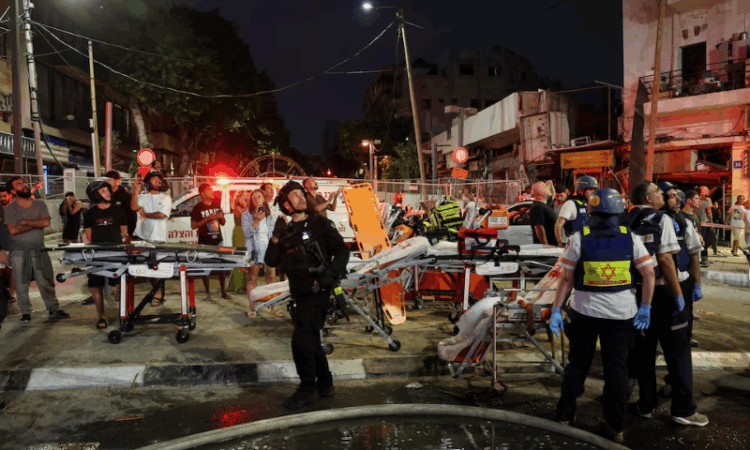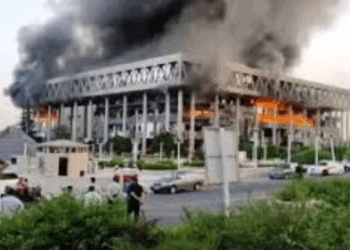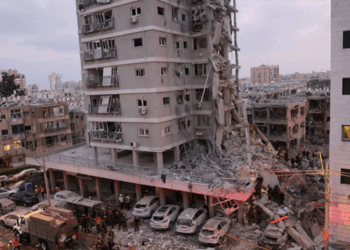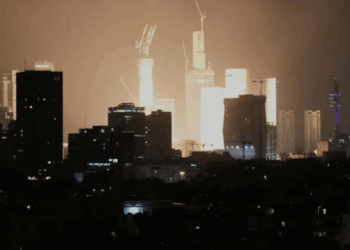Tel Aviv/Tehran/Washington, June 16, 2025: Iran’s foreign ministry confirmed Monday that the country’s parliament is drafting a bill that could lead Tehran to withdraw from the Nuclear Non-Proliferation Treaty (NPT), amid a sharp escalation in hostilities with Israel. The ministry reiterated Iran’s stance against developing nuclear weapons despite mounting regional tensions.
“In light of recent developments, we will take an appropriate decision,” said Foreign Ministry spokesperson Esmaeil Baghaei during a press conference. “The government is obliged to implement parliamentary bills, but this proposal is still in the drafting stage. We will coordinate further with the parliament as it progresses.”
Iran, a signatory to the NPT since 1970, maintains that its nuclear program is for peaceful purposes. However, tensions have surged following Israeli airstrikes and recent assessments by the International Atomic Energy Agency (IAEA) indicating Iran is in violation of its treaty obligations.
Deadly escalation
The diplomatic developments come amid a deadly fourth day of open conflict. In a dramatic predawn attack on Monday, Iranian missiles struck Tel Aviv and Haifa, killing at least eight people and injuring over 100, according to Israel’s emergency services. Several residential buildings were destroyed, including those near the U.S. Embassy in Tel Aviv, though no American personnel were injured.
Strikes also targeted a market near Shuk HaCarmel, a school in Bnei Brak, and a residential area in Petah Tikva. Fires erupted near a power plant in Haifa following the barrage, with search and rescue operations ongoing.
Iran’s Islamic Revolutionary Guard Corps (IRGC) claimed the assault employed a “new method” that caused Israel’s layered air defense systems to misfire against each other, though these claims remain unverified. The Israeli military has not yet commented on the reported tactic.
Israel vows retaliation
Israeli Defense Minister Israel Katz vowed swift and decisive retaliation, stating: “The arrogant dictator of Tehran has become a cowardly murderer, targeting Israeli civilians. The residents of Tehran will pay the price—and soon.”
Israel’s military said it had launched new strikes Monday morning targeting command centers of Iran’s military and the IRGC. Iran’s Health Ministry reported that at least 224 people have been killed since the beginning of the Israeli campaign, with nearly 90% of the casualties said to be civilians.
All 23 Israeli fatalities reported since the start of the conflict have also been civilians, officials said.
G7 leaders respond
The crisis dominated the opening of the Group of Seven (G7) summit in Canada. German Chancellor Friedrich Merz emphasized four key goals: preventing Iran from developing nuclear weapons, upholding Israel’s right to self-defense, avoiding further escalation, and creating space for diplomacy.
“This issue will be very high on the agenda,” Merz told reporters.
U.S. President Donald Trump expressed hope for a diplomatic resolution. “I hope there’s going to be a deal. I think it’s time,” Trump told reporters before departing for the summit. “Sometimes they have to fight it out.”
Trump reportedly vetoed strike on Khamenei
In Washington, two U.S. officials told Reuters that President Trump had recently vetoed an Israeli request to assassinate Iran’s Supreme Leader Ayatollah Ali Khamenei. Israeli Prime Minister Benjamin Netanyahu dismissed the report in a Fox News interview, saying: “There are so many false reports of conversations that never happened, and I’m not going to get into that.”
Rising economic concerns
Brent crude futures rose 0.5% in Monday’s Asian trading, adding to last week’s surge. While energy markets remained volatile, equity and currency markets showed limited movement. “It’s more of an oil story than an equity story at this point,” said Jim Carroll, a senior adviser at Ballast Rock Private Wealth.
Iran reaffirms nuclear energy rights
Iranian President Masoud Pezeshkian addressed parliament Monday, reaffirming that Tehran has no intention of developing nuclear weapons but will continue to pursue its right to nuclear energy and research. Meanwhile, Iran has vowed to continue retaliating for what it calls acts of aggression targeting its nuclear and missile infrastructure.
As fears of a broader regional war grow, international leaders continue to urge restraint while bracing for the possibility of further escalation in the days ahead.








